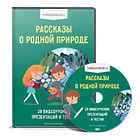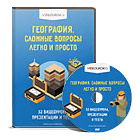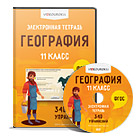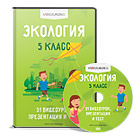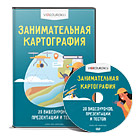| LESSON: Unit 4 The world of work Topic: Adverbs of frequency | School: №23 secondary school named after A.Baitursynov |
| Date: 4.12.17 | Teacher name: Kadyrov Islam |
| CLASS: 5 “a,b” | Number present: | absent: |
| Learning objectives(s) that this lesson is contributing to | S5.3 begin to describe past experiences on an increasing range of general and some curricular topics R5.5 deduce meaning from context in short texts on a limited range of familiar general and curricular topics W5.7 use with some support appropriate layout at text level for a limited range of written genres on familiar general topics and some curricular topics |
| Lesson objectives | All learners will be able to: |
know the different types of jobs describe what people of various occupations do and wear ask and answer to the questions about jobs |
| Most learners will be able to: |
| |
| Some learners will be able to:
|
| |
| Language objectives | Use simple present and simple present continuous tenses |
| Value links | Collaboration, helping others |
| Cross curricular links link | World around us |
| ICT skills | Projector or Smart board for presenting a video |
| Intercultural awareness | Students will be able to explain what people of different occupations do |
| Kazakh culture | Students will be able to differentiate common jobs in Kazakhstan |
| Pastoral Care | Students will be able to understand the importance of doing job and helping people |
| Health and Safety | Everyday classroom precautions will ensure that safety measures are provided to prevent the exposure of electrical power cords |
| Previous learning | Professions |
| Plan |
| Planned timings | Planned activities | Resources |
| 0-3 minutes
3-10
| Class organisation Learning and lesson objectives presentation Warm-up (W, I) Clap, clap, clap your hands
Clap, clap, clap your hands together.
Stamp, stamp, stamp your feet,
Stamp, stamp, stamp your feet together.
Dance, dance, dance you dance,
Dance you dance together. Adverbs
According to their meaning adverbs are subdivided into adverbs of time, adverbs of place, adverbs of repetitions and frequency, adverbs of degree and adverbs of manner. But today we will speak about the adverbs of frequency.
Adverbs of frequency:
usually, sometimes, often, rarely, seldom, never
Adverbs describe verbs. They show us how, how often, when someone does something.
Adverbs usually go after verbs.
E. g. I usually wake up at 8 o’clock
Мен әдетте таңғы асымды сағат 8 де ішемін.
E. g. I never have a breakfast without my sister.
Мен ешқашан таңғы асымды сіңілімсіз ішпеймін
Adverbs of frequency tell us how often something happens:
These are: Always - (100%) - әрқашан
Usually - (75%)- әдетте
Often - (50%) - Жиі
Sometimes - (25%)- кейде
Seldom - (10%)- анда - санда
Never - (0%)- ешқашан
Position of adverb:
• Usually, always, never, sometimes, often, rarely
• Әдетте бұл үстеулер мағыналық етістіктің алдында қолданылады.
• E. g. I usually get up at 7 o’clock.
• I don’t often go to the cinema.
• She never eats bananas.
• We always watch TV in the evenings.
• I sometimes go swimming.
• Sometimes және usually сөйлемнің басында және соңында қолданы
• E. g. Sometimes I play tennis.
• Бұл үстеулер әрқашан to be етістігінен кейін қолданылады.
E. g. I am never late. Ex-1 Put the words in the correct order to make sentences. a. always/France/to/go we/spring/in b. never/coffee/my/drinks/brother c. late/Jack/often/is d. to/cinema/seldom/the/they/go
| PPT slides
Handout 1 http://learnenglishkids.britishcouncil.org/en/songs/people-work
http://bilimsite.kz/agilshin/7352-adverbs-of-frequency.html
http://www.tarbie.kz/19580
|
| Middle 10-19
| Exercise 2. Put the adverbs in brackets into the correct place in the sentences
1. Overweight teenagers eat the wrong kind of food.(usually)
2. They are depressed about their weight (often)
3. They eat fresh fruit and vegetables. (rarely)
4. Helen ate fruit when she was younger (never)
5. She bought chocolate at break time (always)
6. Do you eat the wrong kind of food (sometimes)
Exercise 3. True or False . Read and circle True or False I always go to the cinema on Sunday mornings because it’s cheaper. I usually go with my friends but sometimes I go with my parents. I always take sweets with me but I buy a drink there. I never get popcorn because I hate it! How often do you go to the cinema?
a. I go to the cinema on Sundays. True /False b. I sometimes go with my friends. True/ False c. I go with my parents every time. True/ False d. I don’t buy sweets at the cinema. True /False e. I take a drink from home. True /False f. I get popcorn every time I go. True /False
|
file:///C:/Users/user/Desktop/grammar-games-adverbs-of-frequency-worksheet.pdf
|
| Lesson 2 0-10
| Interview (I, P) Interview! Interview a friend and write their answers. a. How often do you do your homework before school? _My friend __________________________________________________________ b. How often do you have cereal for breakfast? ________________________________________________________________________ c. How often do you go to the park when it’s raining? _________________________________________________________________________ d. How often do you use the computer in English? _____________________________________ |
file:///C:/Users/user/Desktop/grammar-games-adverbs-of-frequency-worksheet.pdf
|
| End 36 - 40 | Plenary Students are organized into groups of four or five to make up the description of people in some jobs. The example is given: Lawyer Neat, well-dressed, hard-working, intelligent, 40 to 50 years old, etc. |
|
| Additional information |
| Differentiation – how do you plan to give more support? How do you plan to challenge the more able learners? | Assessment – how are you planning to check learners’ learning? | Cross-curricular links
Health and safety check
ICT links
Values links
|
More support can be given at the start and in middle of lesson by providing less-able learners with story vocabulary in a word list so they can read examples of words seen or heard. Learners who are less confident at making up dialogue, can be given copies of parts of the dialogue from the story to read aloud. More-able learners can be encouraged to use the full range of language from the video when they practise the role-play. |
Monitor learners as they reorder events from the story. Can they read and understand each event and can they sort them into chronological order? Notice any sentences which are difficult for learners to understand and adapt for a future lesson. Monitor groups of learners as they agree on and practise dialogue for the role-play activity. Do they take turns to speak? Do they contribute appropriate language for the role-play? | Links to the L1: Do learners know this story in the L1 and do they know any other Aesop’s fables? Make sure learners have sufficient space to act out the role-play. As the unit is on the topic of values, it is very important to leave time to discuss the end two questions with the whole class. |
| Reflection Were the lesson objectives/learning objectives realistic? What did the learners learn today? What was the learning atmosphere like? Did my planned differentiation work well?
Did I stick to timings? What changes did I make from my plan and why?
| Use the space below to reflect on your lesson. Answer the most relevant questions from the box on the left about your lesson. |
|
|






